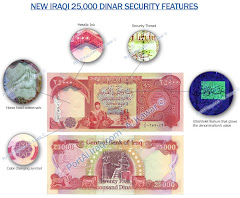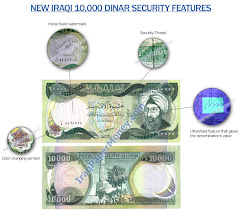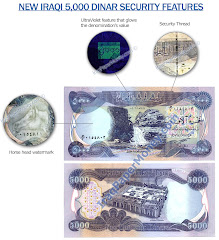IMF Executive Board approves US$744 million stand-by arrangement for Iraq
The Executive Board of the International Monetary Fund (IMF) has approved a successor Stand-By Arrangement for Iraq for an amount equivalent to SDR 475.36 million (about US$744 million). Prior to the Board's approval, Iraq cancelled the current Stand-By Arrangement, which had been approved by the IMF's Executive Board on December 23, 2005 (see Press Release No. 05/307) and extended on March 12, 2007 (see Press Release No. 07/48) and on August 1, 2007 (see Press Release No. 07/175). The successor arrangement is designed to support Iraq's economic program over the next 15 months through March 2009. The Iraqi authorities intend to treat the arrangement as precautionary.
Following the Executive Board's discussion of Iraq, Mr. Takatoshi Kato, Deputy Managing Director and Acting Chair, stated:
"The Iraqi authorities have succeeded in keeping their economic program on track in 2006-07, despite the difficult security and political situation. The tightening of monetary policy and the appreciation of the dinar—along with the maintenance of fiscal discipline and the measures to reduce fuel shortages—have led to a sharp reduction in inflation. Direct budgetary fuel subsidies have been eliminated, except on kerosene, and private fuel imports have been liberalized. The recently enacted amendments to the pension law have made the pension system fiscally sustainable. A new chart of accounts and budget classification have been adopted and the payments system has been modernized.
"Although the security situation has showed signs of improvement in recent months, it remains a major obstacle for investment and reconstruction, hampering oil production and economic growth। Also, much remains to be done to modernize financial management of the government and the central bank, and to reform the banking system.
"The authorities' program for 2008 aims to allocate resources towards investment, including in the oil sector, and to improve the provision of public services, while containing current government spending, notably on the wage and pension bill. The program—which envisages an increase in economic growth, a further reduction in inflation, and an increase in net international reserves—will also encompass priority structural reforms, including actions to strengthen administrative capacity and governance.
"The authorities intend to press ahead with structural reforms, including measures to modernize public financial management, complete the census of public service employees, and restructure the two largest public banks. They are determined to avoid the re-emergence of direct fuel subsidies, and plan to develop a rule-based mechanism of adjusting domestic fuel prices. To strengthen governance in the oil sector, the implementation of a comprehensive oil metering system should be finalized as soon as possible. In addition, a new hydrocarbon law needs to be put in place to facilitate investments in the oil sector.
"The Central Bank of Iraq (CBI) will continue to strengthen its accounting and reporting framework by implementing the recommendations of the Fund's Interim Safeguards Assessment Report and the Ernst & Young audit of its 2006 financial statements। The central bank also aims to expand the coverage of the payments system, strengthen the supervisory framework for commercial banks, and adopt reserves management guidelines.
"The authorities' efforts to settle arrears and conclude debt agreements with private and official creditors are commendable. However, further progress is needed to resolve the remaining non-Paris Club claims," Mr. Kato said.
ANNEX
Program Summary
The main objectives of the new program are to maintain macroeconomic stability, facilitate higher investment and output in the oil sector, and move forward with key reforms that were initiated under the previous arrangement. The 2008 program envisages an increase of oil output to 2.2 mbpd, and overall GDP growth to reach 7 percent. Annual consumer price inflation is targeted to decline to 12 percent in 2008. The net international reserves of the CBI are expected to increase to about US$34 billion by the end of 2008.
The 2008 government budget makes room for sizable investment while maintaining fiscal sustainability and continuing to avoid direct fuel subsidies, except on kerosene। External debt sustainability would be achieved when the third tranche of the Paris Club debt rescheduling (20% in Net Present Value terms) is triggered upon completion of the final review of the proposed SBA by end-2008 and further progress is made in rescheduling the remaining debt from non-Paris Club official creditors on comparable terms.
Key structural reforms under the program include the strengthening of public financial management and the accounting framework of the CBI; the restructuring of the two largest public banks; and strengthening governance in the oil sector.
Iraq joined the IMF on December 27, 1945. Its quota is SDR 1.188 billion (about US$1.860 billion).
IMF EXTERNAL RELATIONS DEPARTMENT
Public Affairs
Phone: 202-623-7300
Fax: 202-623-6278
Media Relations
Phone: 202-623-7100
Fax: 202-623-6772





